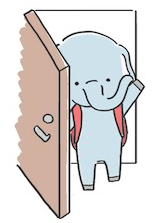日本のSNSでよく使われる略語には、タイピングを簡単にするために使われるものや、若者文化の中で広まった表現があります。以下は、代表的な略語の一覧です。
1. り
- 意味: 「了解」を意味します。簡単な返事として「了解です」という代わりに「り」を使うことが多いです。
- 例: 「明日9時に集合ね」→「り」
2. 草(w)
- 意味: 笑いを表す「ww」を省略して「草」と言います。「w」は「笑い」を意味する「ワラ」からきており、たくさん「w」が並ぶと草に見えることから「草」と言われるようになりました。
- 例: 「この動画おもしろいwww」=「この動画おもしろい草」
3. おk
- 意味: 「OK」の省略形で、カタカナの「オケ」から短縮されたもの。了承や同意を簡単に伝えるために使われます。
- 例: 「明日ランチ行こう」→「おk」
4. イミフ
- 意味: 「意味不明」の略。理解できない、分からないことを表すときに使います。
- 例: 「彼の話、イミフすぎてついていけない」
5. 乙
- 意味: 「お疲れ様」の略。仕事や作業が終わった後、またはゲームのプレイ後などに使います。
- 例: 「今日のミーティング、長かったね」→「乙!」
6. orz
- 意味: 人がひざまずいてがっかりしている姿を表したアスキーアートで、失敗や残念な状況を表すときに使います。
- 例: 「テストに落ちた…orz」
7. メンヘラ
- 意味: 「メンタルヘルス」に問題を抱えている人を指す言葉。「メンヘル」から派生して生まれた略語です。
- 例: 「あの人、最近メンヘラ気味かも」
8. リア充
- 意味: 「リアルが充実している」人を指します。SNS上では、恋愛や生活が順調な人を指すことが多いです。
- 例: 「あのカップル、ほんとリア充だな」
9. ガチ
- 意味: 「本気」「真剣」を意味します。何かに本気で取り組む様子を表現するときに使われます。
- 例: 「テスト勉強、ガチでやらないとやばい」
10. wktk
- 意味: 「ワクワクテカテカ」の略。何か楽しみなことがあって期待している気持ちを表します。
- 例: 「明日のライブ、wktk!」
11. TMI
- 意味: 「Too Much Information」の略で、必要以上に詳細な情報を提供する際に使われます。
- 例: 「その話、ちょっとTMIだよ(笑)」
12. kwsk
- 意味: 「詳しく」の略。詳細を知りたいときに使います。
- 例: 「新しいゲーム買ったの?」→「kwsk!」
13. ~なう
- 意味: 英語の「now」から来ており、現在進行形を表す言葉です。Twitterなどでよく使われ、「~しているところ」を表現します。
- 例: 「カフェで勉強なう」
14. ktkr
- 意味: 「きたこれ!」の略で、期待していたことが実現した時や、嬉しい出来事に対して使います。
- 例: 「あの番組、また始まるらしいよ!」→「ktkr!」
15. DQN
- 意味: 「非常識な人」や「マナーが悪い人」を指すインターネットスラングです。
- 例: 「昨日、電車でDQNに絡まれた…」
16. 神ってる
- 意味: 神のようにすごい、完璧であるという意味で使われます。何かが非常に優れていることを表現する時に使います。
- 例: 「今日の試合、あの選手、神ってたね」
17. 箱推し
- 意味: 特定のメンバーではなく、グループ全体を応援するという意味で、アイドルファンが使う言葉です。
- 例: 「私はあのグループ、箱推しだよ」
これらの略語は日本のSNSやネット掲示板で非常に頻繁に使われており、短い文章でコミュニケーションを取る際に役立っています。
Commonly Used Abbreviations on Japanese Social Media Sites
Common abbreviations people use on Japanese social media sites include those they use to simplify typing and expressions popularized in youth culture. Below is a list of some typical abbreviations:
1. Ri
- Meaning: “Ri” is an abbreviation for “ryoukaidesu” which means “I understand”. People use it as a simple reply instead of using the full word.
- Example: “I will meet you tomorrow at 9:00 a.m.” → “ri”
2. Kusa (w)
- Meaning: “Kusa” is an abbreviation for “ww”, which is the same as “lol” in English. The “w” comes from “wara”, which means funny, and when putting many “w’s” in a row, all of them together look like grass, hence the abbreviation, “kusa” (grass).
- Example: “This video is funny www” = “This video is funny kusa”.
3. Ok
- Meaning: “Ok” is an abbreviation for the katakana “oke”. People use it to simply express approval or agreement.
- Example: “Let's go for lunch tomorrow” → “Ok”
4. Imifu
- Meaning: “Imifu” is an abbreviation for “imifumei” (ambiguous). People use it to express something they don’t understand or know.
- Example: “His speech is so imifu, I can’t follow it”.
5. Otsu
- Meaning: “Otsu” is an abbreviation for “otsukaresama”(good job). People use it after working, finishing a task, or playing a game.
- Example: “Today's meeting was long.” → “Otsu!”
6. orz
- Meaning: If you look at the word, “orz” like it’s an ASCII art emoticon, it depicts a person kneeling in disappointment, so people use “orz” to express failure or a disappointing situation.
- Example: “I failed the test…orz.”
7. Menhera
- Meaning: “Menera” is an abbreviation derived from the word, “menhel” (“mental health”, so people use “menera” to describe a person with mental health problems.
- Example: “That person’s been a bit of a menhera lately.”
8. Reaju
- Meaning: “Reaju” refers to a person “full of life in real life”. On social media, people often use this term to refer to people doing well in love and life.
- Example: “That couple is really reaju.”
9. Gachi
- Meaning: “Gachi” is an abbreviation for “gachide” and means “serious” or “earnest”. People use it to express seriousness about something.
- Example: “I have to study hard for the test or I’ll be in trouble, gachi.”
10. wktk
- Meaning: “wktk” is an abbreviation for “Wakuwaku tekateka”. People use it to express anticipation for something they’re looking forward to.
- Example: “The concert’s tomorrow, wktk!”
11. TMI
- Meaning: “TMI” stands for “too much information”, and people use it as a response to people giving more detail than necessary.
- Example: “That story’s a little TMI lol.”
12. kwsk
- Meaning: “kwsk” is an abbreviation for “kuwashiku”. People use it when they want to know more details about something.
- Example: “Did you buy a new game?” →”kwsk!”
13. 〜nau
- Meaning: “nau” is derived from the English word, “now”, and people use it in the present progressive tense, often on Twitter to express “they’re in the middle of something”.
- Example: I’m studying at a cafe nau.”
14. ktkr
- Meaning: “ktkr” is an abbreviation for “kitakore!” (here it comes!), and people use it when something you’re expecting comes true or when you’re happy about an event.
- Example: “I heard that the show is going to start again!” →”ktkr!”
15. DQN
- Meaning: “DQN” is internet slang for someone who’s insane” or has “bad manners”.
- Example: “Yesterday, I got tangled up with a DQN on the train...”
16. Kamitteru
- Meaning: “Kamitteru” means “godlike” or “perfect”. People use it to express something that is very good.
- Example: “That player was Kamitteru in today's game”.
17. Hako oshi
- Meaning: “Hako oshi” is a term idol fans use to express support for a group as a whole, rather than for a specific member.
- Example: “I'm a Hako oshi to that group (big fan of that group).”
People very frequently use these abbreviations on Japanese social media sites and online forums and they are therefore useful for communicating in short sentences.

sign up for the Japanese-Online Newsletter
__..-・**・-..__..-・**・-.._ あいうえお かきくけこ さしすせそ たちつてと なにぬねの はひふへほ まみむめも やいゆえよ らりるれろ わゐうゑを ん __..-・**・-..__..-・**・-.._
#JapaneseOnline #LearningJapanese #FreeJapaneseLessons #JapaneseVideoLearning #JapaneseAnime #Anime #JapaneseFood #Bloguru